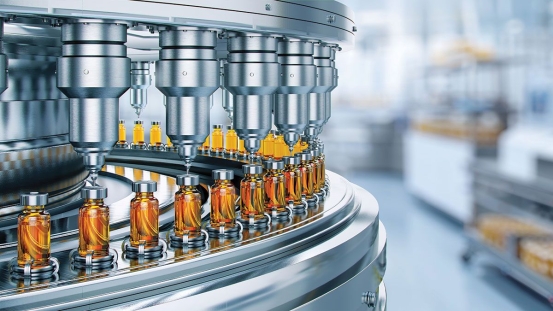Biopharmaceutical production is rapidly advancing, transforming how therapies are developed, manufactured, and delivered, while improving efficiency, quality, and patient outcomes.

Enhanced Cell Culture Technologies
Modern cell culture methods are dramatically improving biopharma production capabilities. Techniques such as fed-batch and perfusion processes deliver higher-quality biologics with greater purity. By carefully controlling parameters like temperature, pH, and nutrient supply, manufacturers can shorten production timelines, reduce costs, and optimize output. Continuous processing allows real-time monitoring and adjustments, supporting consistent, efficient, and safer therapies.
Single-Use Technologies (SUT)
The introduction of single-use bioreactors and disposable systems has reshaped operations by minimizing contamination risks and reducing cleaning downtime. This accelerates setup times and enables faster scale-up with adaptable production models. For smaller biotech firms, SUT offers the flexibility to innovate without heavy capital investment, enhancing competitiveness and industry responsiveness.
Automation and Artificial Intelligence
Automation and AI are becoming essential in contemporary biopharmaceutical production. Intelligent systems analyze large data sets in real time, enabling predictive maintenance and workflow optimization. Robotics manage repetitive tasks, freeing skilled staff to handle complex processes. These technologies increase reliability, reduce waste, improve safety, and make manufacturing more efficient and resilient.
Advances in Quality Control and Assurance
High-throughput screening and sophisticated analytical methods, including chromatography and mass spectrometry, ensure rigorous quality assurance. Thorough testing and characterization maintain product safety, consistency, and regulatory compliance. Strong quality control builds trust among regulators, healthcare providers, and patients, confirming that biopharma products meet exacting standards.
DNA and RNA Technologies
DNA and RNA platforms are transforming therapeutics. mRNA technology, showcased during the COVID-19 vaccine rollout, enables rapid development and production of treatments. Gene therapies are progressing, offering potential cures for previously untreatable conditions. These advances pave the way for personalized medicine tailored to individual patient needs.
Sustainable Biopharma Practices
Sustainability is increasingly integrated into biomanufacturing. Renewable energy, waste reduction, and water conservation are becoming standard. Circular economy approaches, which repurpose by-products as raw materials, reduce environmental impact, lower costs, and improve operational efficiency, while enhancing industry competitiveness.
Implications for the Industry and Healthcare
These innovations are driving a shift toward agile, data-driven, patient-focused production models. Improved efficiency, cost reduction, and higher-quality outputs allow companies to respond rapidly to evolving healthcare needs. Patients benefit from quicker access to safe, effective therapies, while organizations gain adaptability and resilience.
Looking Ahead
Monitoring these trends reveals the growing impact of biopharmaceuticals in addressing global health challenges. Staying updated on emerging technologies is critical, as they will shape the future of therapeutic production and delivery. Organizations like the Biotechnology Innovation Organization (BIO) and the International Society for Pharmaceutical Engineering (ISPE) provide essential insights into this evolving field.
